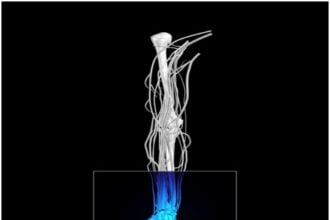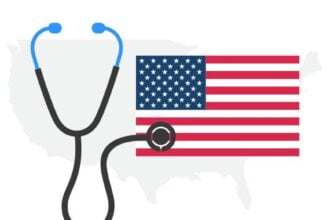 Every patient wants the best medical care available. With a shortage of primary care doctors in the United States, should nurse practitioners be given the same responsibilities as their physician colleagues in order the fill the void? Much debate surrounds this issue.
Every patient wants the best medical care available. With a shortage of primary care doctors in the United States, should nurse practitioners be given the same responsibilities as their physician colleagues in order the fill the void? Much debate surrounds this issue.
 Every patient wants the best medical care available. With a shortage of primary care doctors in the United States, should nurse practitioners be given the same responsibilities as their physician colleagues in order the fill the void? Much debate surrounds this issue.
Every patient wants the best medical care available. With a shortage of primary care doctors in the United States, should nurse practitioners be given the same responsibilities as their physician colleagues in order the fill the void? Much debate surrounds this issue.
Medical doctors and nurse practitioners often work in the same practice, but a recent survey of each provider group by the New England Journal of Medicine finds that there is some discrepancy over the quality of care provided.
The study found that, “nurse practitioners were more likely than physicians to believe that they should lead medical homes, be allowed hospital admitting privileges, and be paid equally for the same clinical services. When asked whether they agreed with the statement that physicians provide a higher-quality examination and consultation than do nurse practitioners during the same type of primary care visit, 66.1% of physicians agreed and 75.3% of nurse practitioners disagreed.”
Nurse practitioners have been a vital part of our medical community for many years, often serving as patients’ primary care providers. Some nurse practitioners, like doctors, specialize in other areas of medicine, such as orthopedics, cardiology or dermatology. They make diagnoses, prescribe medication, order labs and x-rays and do all sorts of other things a physicians would do. The major difference is, a physician generally has about four times as many hours of medical education as a nurse practitioner.
The recent feud between doctors and nurse practitioners stems from legislature in a handful of U.S. states, Each is currently considering a bill that would allow nurse practitioners to treat patients without the direct supervision of a physician. In some states, this is already allowed. So, is this just a turf war? Or are physicians genuinely concerned about the quality of care their patients will receive?
In a recent survey by Doctor Patient Medical Association, 64 percent of medical doctors polled said that quality would worsen by expanding nurses responsibilities.
Reid Blackwelder, President Elect of the American Academy of Physicians echoed this sentiment in a recent op-ed. “We value nurse practitioners. Family physicians work with nurse practitioners across the country. They are critical players on the health care team — but they are not physicians. A physician-led patient-centered medical home ensures we have the health care professionals we need and that every patient gets the right care from the right medical professional at the right time.”
As the Affordable Care Act allows more Americans to access primary care services, giving nurse practitioners more responsibility may be the only option moving forward. Less than 25 percent of new doctors go into primary care, found researchers at the George Washington School of Public Health and Health Services. And just 4.8 percent move to rural areas.
Perhaps it is time for doctors and nurses to stop bickering over who is qualified to perform which responsibilities in the office. It is time to come up with a solution to fill the primary care hole before Americans are suffering the consequences.
(nurse practitioner / shutterstock)









